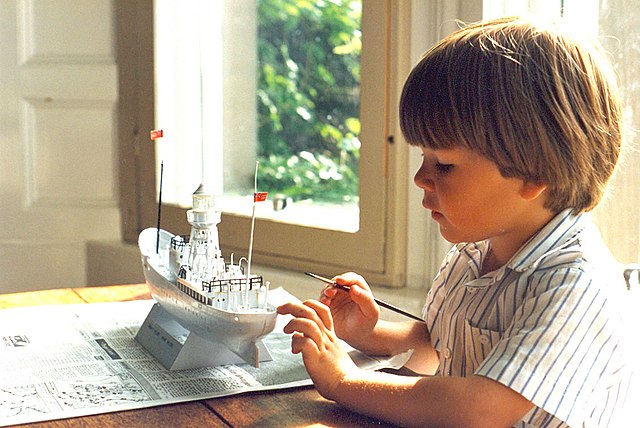Flow in positive psychology, also known colloquially as being in the zone, is the mental state in which a person performing some activity is fully immersed in a feeling of energized focus, full involvement, and enjoyment in the process of the activity. In essence, flow is characterized by the complete absorption in what one does, and a resulting transformation in one's sense of time. Flow is the melting together of action and consciousness; the state of finding a balance between a skill and how challenging that task is. It requires a high level of concentration. Flow is used as a coping skill for stress and anxiety when productively pursuing a form of leisure that matches one's skill set.
Concentrating on a task, one aspect of flow
Young child, painting a model
Flow may occur in challenging sports such as eventing.
This specific FMRI scan determined which areas of the brain are activated during working memory tasks, but this type of imaging could also determine the areas of brain activated during flow experiences.
Positive psychology studies the conditions that contribute to the optimal functioning of people, groups, and institutions. It studies "positive subjective experience, positive individual traits, and positive institutions... it aims to improve quality of life."
To Seligman, psychology (particularly its positive branch) can investigate and promote realistic ways of fostering more well-being in people and communities.
The works of Aristotle include elements of what is now called positive psychology
The first World Happiness Report was initiated by the UN General Assembly in June 2011.







